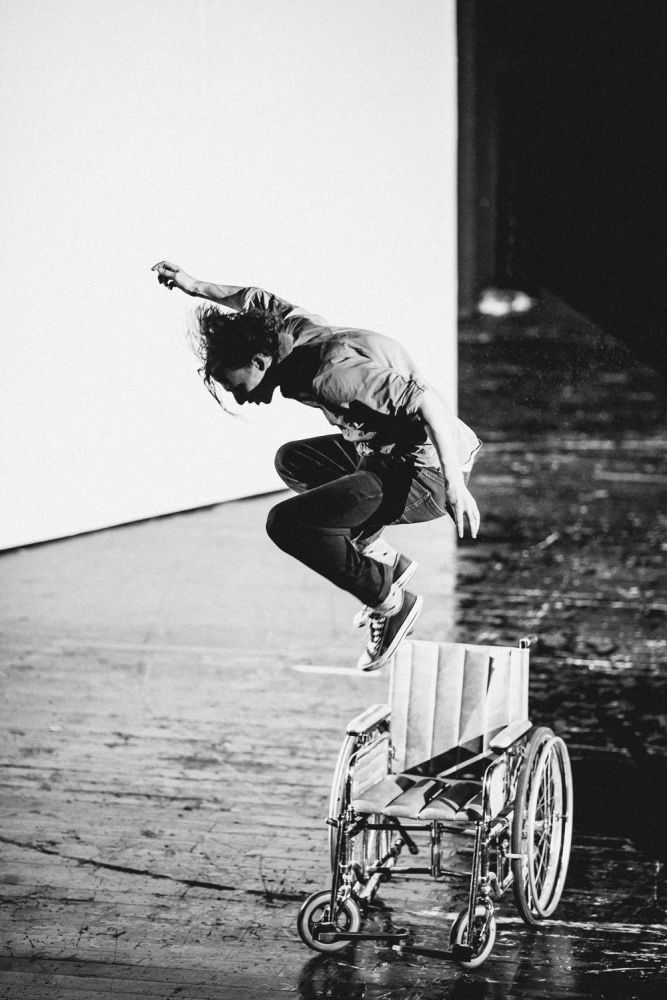KARABAKH MEMORY (2025)
Maxim Gorki Theater, Studio R
Upcoming performances:
September 6–7 (tickets)
October 18 (tickets)
"During the war of 2020, when people left their homes, for me the strongest images were those of people who had dug up the bones of their relatives from their graves and burned their own homes. Both actions had the same goal: to prevent these memories from falling into the hands of the enemy.
History keeps moving on. At the end of September 2023, up to 120,000 Armenians fled from the Azerbaijani troops coming into Nagorno-Karabakh (Artsakh) and went to Armenia, including Roza Sarkisian’s father. He packed his belongings, took a few last photos of the family home, packed some earth in a small mason jar and set off on the arduous journey. Director Roza Sarkisian developed Karabakh Memory around her family history, and around individual mementos – the curse and blessing of remembering.
reviews
- taz, Tom Mustroph
“Through numerous slapstick interludes – such as selling soil from Artsakh – Lefèvre and her fellow performers, Alexandra Malatskovska and Tim Freudensprung, repeatedly break the fury. Yet grotesque and rage also fuel one another.”
…Memory and nostalgic longing for home are presented here as vomiting and defecation… memory and nostalgia, like diarrhea and vomiting, appear as an indecent, uncontrollable, sudden and embarrassing bodily function…Instead of reinforcing structures of memory, Sarkisian piles up diverse mediations on stage in order to examine their external forms – at times comic, at times terrifying…The performance becomes a necessary laboratory of representation, commemoration and working-through of trauma, where liberating bursts of laughter coexist with horror and dread.”
team
Director: Roza Sarkisian
Stage design: Dana Kavelina
Costume: Dana Kavelina, Julia Radewald
Music: Alexandra Malatskovska
Video: Magda Mosiewicz
Lighting design: Daniel Krawietz
Dramaturgy: Johannes Kirsten
cast
Tim Freudensprung
Flavia Lefèvre
Alexandra Malatskovska
festivals
Im Rahmen von 100 + 10 – Armenian Allegories
trailer: https://www.youtube.com/watch?v=gl1DsfSG5fQ&t=1s



.jpg)





.jpeg)



.jpeg)